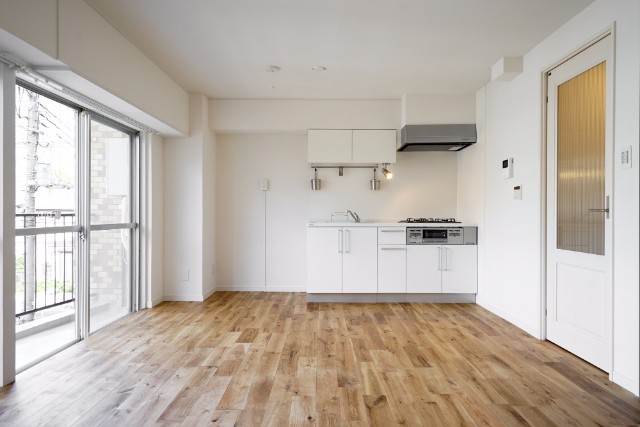The application process
As with anything in Japan, there will be a lot of paperwork involved when submitting your rental application. Typically the application process will take one to two weeks.
Documents:
Copy of your passport
Copy of your resident card (在留カード) both front and back
Proof of residence certificate (住民票) obtained at your city or ward office
Proof of employment (typically one of the documents below should suffice)
Health Insurance Card (保険証)
Tax Withholding Slip (源泉徴収表) “genzen” for short
Employment contract
At least three months worth of pay checks (給料明細)
If you are a student, proof of enrollment at your institution.
Emergency contact information (緊急連絡者)
*My application included a copy of my passport and my Tax Withholding Slip.
Once your application is submitted, it will be processed and reviewed (審査). The owner (if the owner is using a guarantor company then their review as well) will decide whether or not he or she will accept your application. As an expat, understand the application may be declined. My application for one of the apartments I was looking to move into was declined. Now looking back I’m actually glad it was declined.
Once the application has been accepted, you will then proceed with signing the rental contract! Remember to bring your name stamp or “hanko.”
You will then go on with the process of signing and stamping the contract, writing your name and address at least four times. The contract will then be submitted to the landlord or the management company. At this moment either before or after signing all of the documents, you will then pay your agent the up front costs, the move-in costs I mentioned in my last blog post.
- If you are wanting to pay your rent via automatic bank transfer (口座振替), you then will fill out another form. This was mentioned in part 1 of my guide in the second simulation.
Information you will need to fill out:
Your name: how it is written in your bankbook (通著)
Bank name in both kanji and in furigana (ふりがな・フリガナ)
Account number (口座番号)
Branch name and code (支店・支店番号)
Your agent will then submit this information to the landlord or the management company. The day you receive your keys, your agent will then give you some miscellaneous information such as how to open the postbox, etc.
With the newer apartment complexes, the management company will give you a book with all the pertinent information.
Guarantor

In Japan, most landlords require a guarantor to guarantee rent is paid every month. Typically a guarantor is a person who has Japanese citizenship. This way the landlord has some sort of security (“money”) if you happen to default on a payment. Just a heads up, some of your Japanese friends might be reluctant to be your guarantor since it is a pretty big responsibility. They will be responsible if you happen to leave the country unexpectedly. There have been cases where expats will leave the country without notifying their landlord or management company.
Not every property requires you to have a guarantor. The example I showed in simulation 1 of the last blog post showed that the guarantor company fee was 0.
If you don’t feel comfortable asking one of your Japanese friends or co-workers, then the Guarantor company option will be available showed in simulation 2.
Some Guarantor companies will require you to have a personal guarantor as well. This way the company can split the responsibility with your personal guarantor if you were to miss a payment.
Lastly, don’t worry if you don’t have a guarantor. There are plenty of apartments that doesn’t require a guarantor, guarantor company, or both.
The Explanation of Important Matters(重要事項説明書)
The Explanation of Important Matters will be done by one who holds a realtor license in Japan(宅地建物取引士)
The explanation will include information of the specific property, the specific unit, the owner, the renter, as well as the important information that will be written in the lease contract.
Information regarding the contract:
The cost of living in said unit (Rent, management fee, etc)
The length of the contract
The do’s and don’ts when living in said unit
What the owner requires from the tenant during the contracted period
The amount of notice you will have to give the management company and owner prior to moving out

